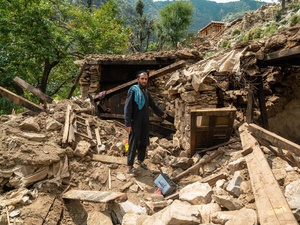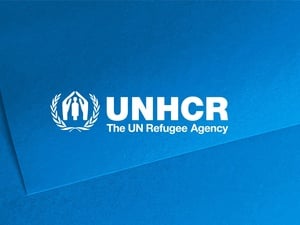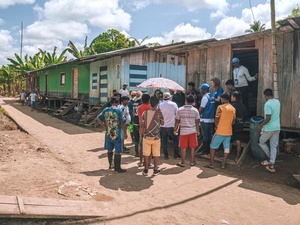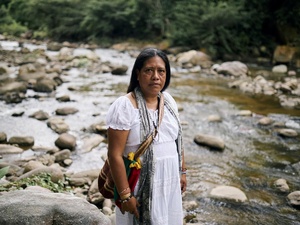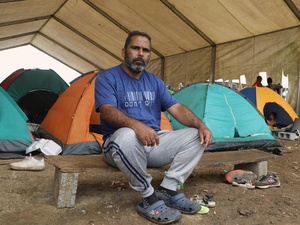Colombia: UNHCR's concerns for indigenous populations
Colombia: UNHCR's concerns for indigenous populations
The United Nations High Commissioner for Refugees (UNHCR) is extremely concerned about the impact that the internal conflict in Colombia is having on the indigenous peoples of that country.
Last week, hundreds of Guahibo-Sikuani indigenous people were forced to flee their homes as a result of heavy fighting between left-wing guerrillas and right-wing paramilitaries in the municipality of Tame, in the north-eastern province (department) of Arauca, close to the Colombian border with Venezuela. According to reports by municipal authorities, members of irregular armed groups have raped several indigenous women and girls.
UNHCR has been co-ordinating with the Ombudsman's Office, the Office of the UN High Commissioner for Human Rights in Colombia and NGOs (CODHES and PCS), in order to monitor the situation in Tame. UNHCR is also liaising with the Colombian government's agency that deals with internal displacement (the Social Solidarity Network) so that emergency assistance is brought to the affected communities.
Another group at risk of displacement are the Kuna (also known as Tule) of Arquía in the Urabá region of north-west Colombia, close to the border with Panama. This community of some 400 members is considering leaving its ancestral lands and crossing the border into Panama to escape threats and intimidation by Colombian irregular armed groups. The indigenous Kuna General Congress of Panama recently announced its willingness to shelter members of the Colombian Kuna communities of Arquía and Caiman, to protect them from the armed violence on the Colombian side of the border. Last January, four indigenous Kuna community leaders were killed during attacks by Colombian illegal armed groups in Panamanian territory. UNHCR, which has projects to assist the Arquía community and visits it on a regular basis, will continue to monitor the situation of this community from both sides of the border.
UNHCR calls upon all armed groups to respect the rights of the civilian population and to guarantee the safety of humanitarian workers.


